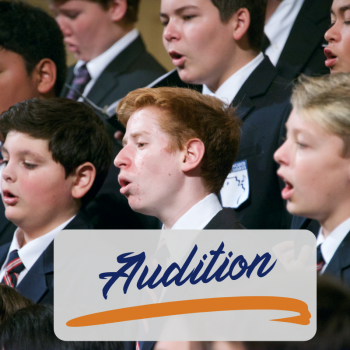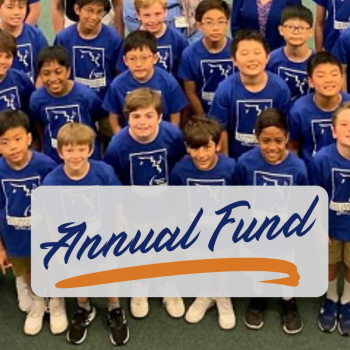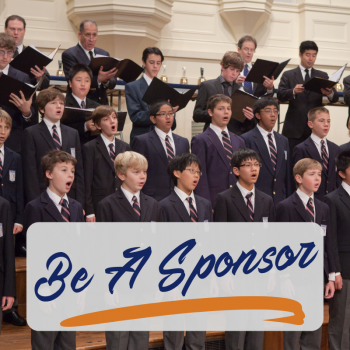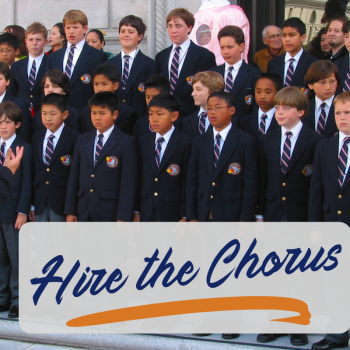The SFBC Educational Philosophy
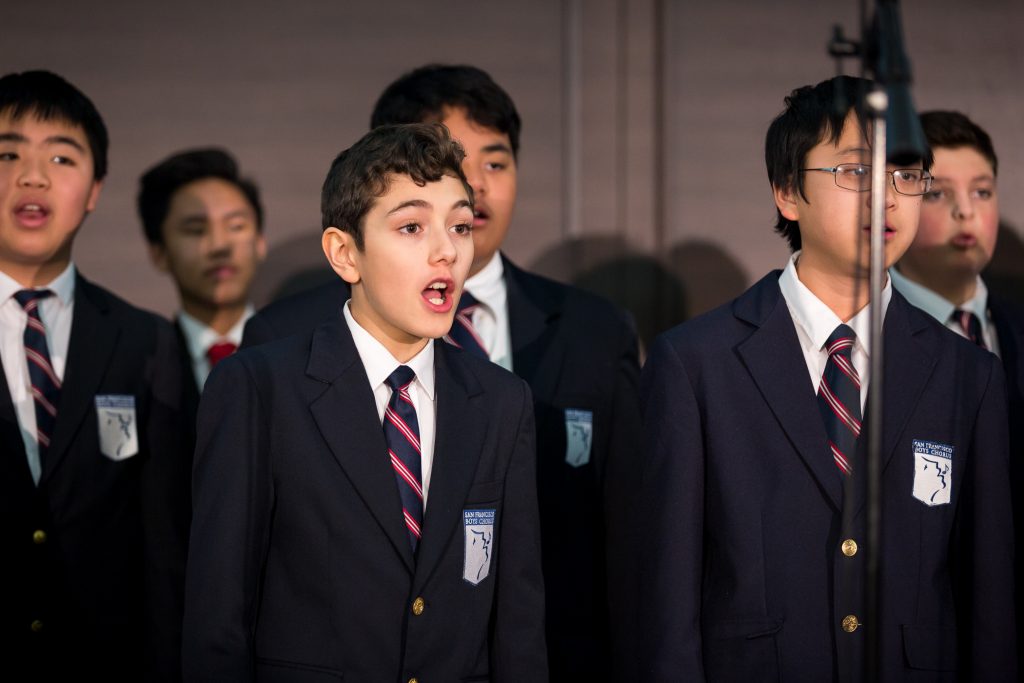
The Chorus School nurtures the belief that boys succeed in a concrete, non-competitive learning environment in which faculty and staff honor children’s learning styles by using kinesthetic, auditory, and visual methods in their instructional approach, combined with sequential, age-appropriate, reward-based learning. Music education benefits include the development of cognitive, personal, and social competencies, including: significantly improved critical thinking, problem posing/solving, and decision-making skills, communication, manipulation, interpretation, and understanding of complex symbols (much like language and mathematics), higher-order thinking skills analysis, synthesis, and evaluation, simultaneous employment of multiple skills, and development of imagination and judgment.
Three Training Chorus Levels
Juniors – Level I
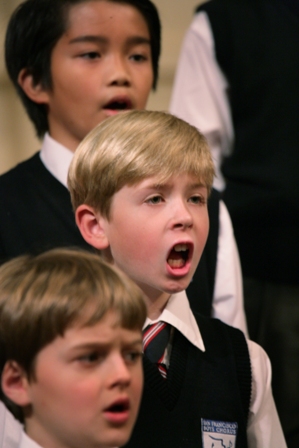
Junior Apprentices meet in an early-childhood training setting that fosters focus on a chorus director, further development of head voice, rhythm through kinesthetic learning, and early sight-singing and music theory concepts using among others, the Kodaly & Orff methods. Choristers in grades K-1 have an emphasis on interactive, creative play and self-discovery and boys ranging from grades 1-2, begin learning part singing through rounds and canons, early training devices used to train the ear to independently hold pitch and eventually be able to harmonize with fellow choristers – a hallmark of any chorus. Juniors will also begin to learn score
reading.
Apprentice – Level II
The Apprentice Chorus, split into smaller Apprentice 1 & Apprentice 2 groups, represents a chorister’s progression into more complex music sung in multiple languages. Apprentices build on the concepts of polyphony learned in the Junior level until choristers are able to sing in two- and three-part harmony. Pitch, rhythm, and an ability to sing easily and clearly in the head voice must already be a solid skill for an Apprentice. Ability to follow a conductor (entrances, cut offs, interpretation) and teamwork are Apprentice concentrations, with additional development in independent singing and decision-making as related to a group.
Differentiated Kodàly-based sight-singing and musicianship classes are designed to help Apprentices meet the developmental music needs of long-term choristers, as well as students who enter this level with no formal training. Apprentices typically range from grades 2-3. Apprentices must be able to read.
Apprentices appear annually at SFBC’s Winter and Spring Concerts, and begin throughout the Chorus year to appear in community concerts that are chosen especially to help encourage their growing performance experience.Apprentices are required to attend the SFBC’s week-long day camp each summer to prepare for the coming Chorus year, begin their journey toward overnight camp, and prepare for touring. Day camp attendance is required for promotion consideration.
Intermediate – Level III
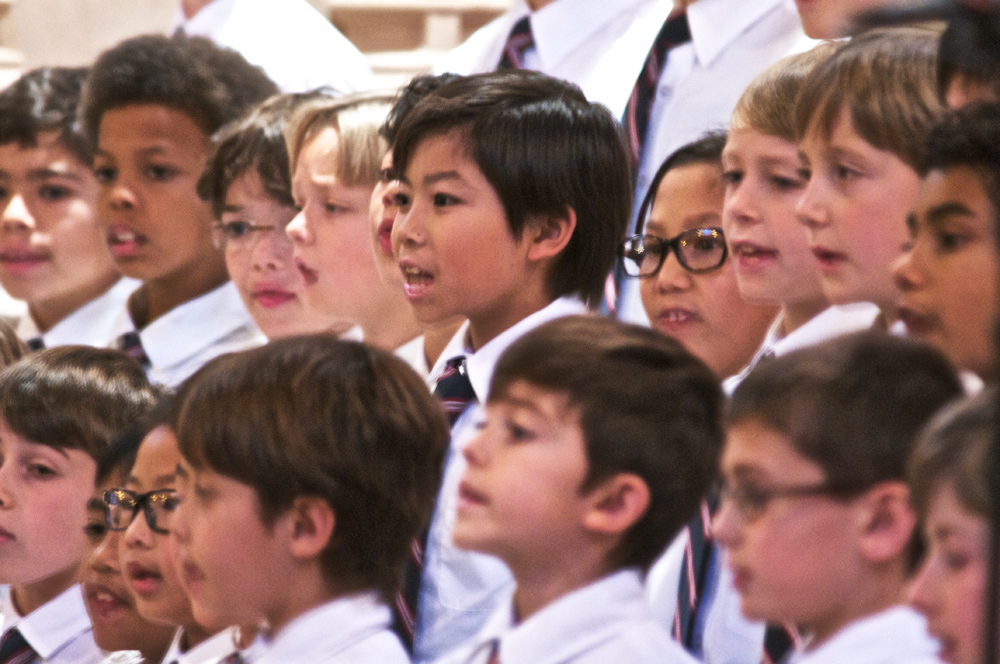
The Intermediate Chorus is one step away from the semi-professional touring Concert Chorus, and represents a chorister’s ability to sing consistently, clearly, and flexibly across his vocal range. Choristers study and perform highly complex three-part literature with consonant and dissonant harmonies, reflecting their ability to hold a vocal part in three-part harmony using a strong, focused sound, and ability to read extended pentatonic melodies and passages.
Intermediates rehearsing at each of the SFBC’s three rehearsal locations perform together for concerts. Newly-minted Intermediates further their music education with increasingly complex music and theory lessons. Intermediates are required to attend summer overnight camp and to audition for the Concert Chorus.
Throughout the year, Intermediates sing at sporting events, in Bay Area festivals and peer-Chorus activities, and public, private, and civic engagements. Intermediates also tour domestically – tours have included trips to Vancouver, the Pacific International Children’s Choir Festival (also in 2018) in Eugene, Oregon, The Heritage Music Festival in Anaheim, California and Denver’s Sing a Mile High Choral Festival.
